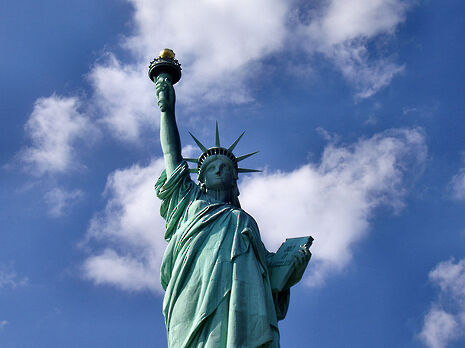Why U.S. gun control is a more complex issue than it seems
Toby Hayward-Butcher argues that framing the gun-control debate within the context of Anglicised values obscures the issue

A week ago, Varsity printed an article in which Joseph Clarke argued that the gun control issue in the United States is cultural. Without wishing to disrespect what was a well written and thought-provoking article, I could not help but disagree with its fundamental argument. The article seems to paint a picture of an excessively bureaucratic and stagnant country, obsessed with its adherence to the principles of its constitution. Now, it is true that within American culture, the constitution does have strong symbolic significance (the reciting of the pledge of allegiance in classrooms being a classically cited example of this) but the constitution is simply a projection of core American values – individualism, personal freedom and, of course, the pursuit of happiness. It is not an obsessive deification of the constitution itself that polarises the debate over gun control so dramatically, but rather the firm and deep-rooted belief in the political principles that inspired it.
This may sound like a pedantic point, but it is important because it is easy to fall into the trap of assuming that pro-gun lobbyists are all self-interested, trigger-happy, right-wing hardliners. This is not helped by the UK press’s filtering of the coverage of the debate, with disproportionate coverage being given to moronic zealots such as Alex Jones, one of the advocates of Piers Morgan’s deportation petition. But America has a long history of association with guns. Their independence as a nation is closely linked to guns in the use of self-defence, and for some gun ownership has been synonymously enmeshed with ideas of liberty and self-protection, ideas which are hardwired into the collective American consciousness. It is largely for this reason that, rightly or wrongly, many Americans see attempts at gun-control as attempts to curtail their individual liberty. It is a difficult point of view to fully appreciate from a British standpoint, especially given that all the Obama administration is attempting to do is put restrictions on the most high-calibre assault rifles, but it is a fallacy to expect that every political decision across the pond is going to resonate here.
People often make the mistake of assuming that the USA is ‘just like’ the UK. Whilst it is true that our two countries do share several cultural similarities, stretching further than simply language, in many ways they are remarkably different. We receive so much American culture through TV, film, news and other media that, coupled with our shared history, it is easy to think of the country as simply a more powerful extension of Great Britain. American politics is almost as well-covered in the UK as our own, and many cultural icons this side of the Atlantic are American. This sense of a cultural synonymy can make us incredulous when Americans deviate from the more liberal agenda familiar to British politics, with the reaction to ‘Obamacare’ being another obvious example. It is far too easy, and actually far too insulting, to attribute these differences to some form of American inferiority. It is becoming increasingly typical for smug liberals to sneer at what they perceive as American stupidity, with more and more characterisations of the republican redneck furiously (and often inarticulately) defending his right to keep a lethal weapon. Whilst people like this do exist, and in numbers, they are not the central figures in the gun control debate.

I do not wish to make a value judgment. Like everyone else, I was moved to tears by the Newtown tragedy, and firmly believe that gun ownership should be banned. But I do not wish to get into a debate about that – what worries me in British journalism is the inherent ethnocentrism. This term is no less appropriate in this instance than in equally clumsy attempts by Americans to understand parts of the Islamic world through the perceptual filter of dogmatic U.S. values. It is patronising to (indirectly) claim that the U.S.A’s “belief about what society should be” is somehow born out of a fickle naivety that betrays its youthful democratic experience. In reality the United States is not really a ‘young nation’ as last week’s article described it. Indeed, the engrained principles of its political climate could not thrive without the passage of time to firmly enshrine them. The U.S.A is a country with a rich history, heritage and culture, and it has not been simply good fortune that has given rise to its ascent to the apex of the geopolitical landscape.
Gun ownership is a more complex issue than the British media, and last week’s article, would have us believe. It is driven by a strong emphasis on individual liberty that is particular to American culture, and may seem unusual or incoherent to us. The unfortunate fact is that complex issues are so often the ones where debate is most polarised and highly charged, and sadly liberals can be just as dogmatic as conservatives in their interpretation of these issues. I have the greatest of respect for last week’s article, which despite what I’ve said, made some very interesting points, and did genuinely engage in the debate. However, if we are to properly articulate the pro-gun-control argument, we should make more of an effort to understand the nuances of the debate as objectively and impartially as possible.
 News / Eight Cambridge researchers awarded €17m in ERC research grants27 December 2025
News / Eight Cambridge researchers awarded €17m in ERC research grants27 December 2025 News / News in Brief: carols, card games, and canine calamities28 December 2025
News / News in Brief: carols, card games, and canine calamities28 December 2025 News / Caius mourns its tree-mendous loss23 December 2025
News / Caius mourns its tree-mendous loss23 December 2025 News / Clare Hall spent over £500k opposing busway 24 December 2025
News / Clare Hall spent over £500k opposing busway 24 December 2025 Interviews / Meet Juan Michel, Cambridge’s multilingual musician29 December 2025
Interviews / Meet Juan Michel, Cambridge’s multilingual musician29 December 2025








